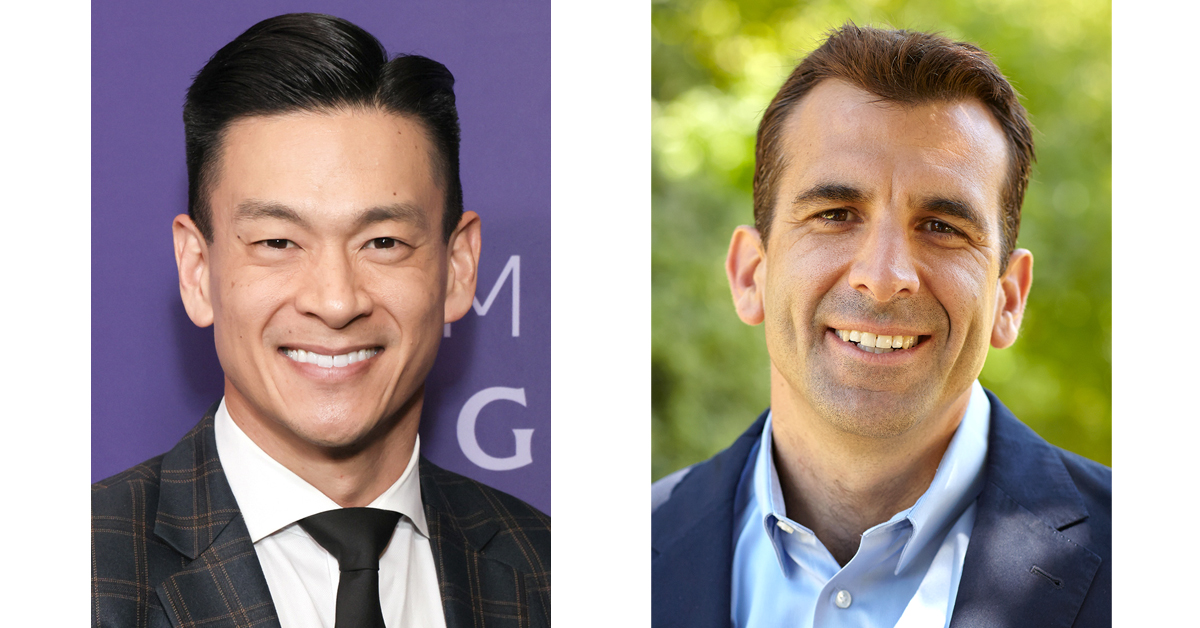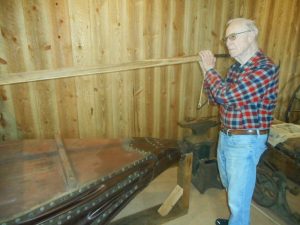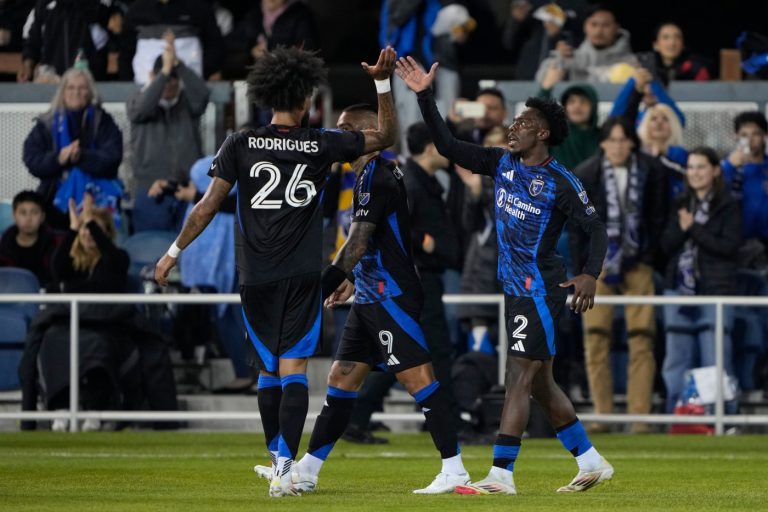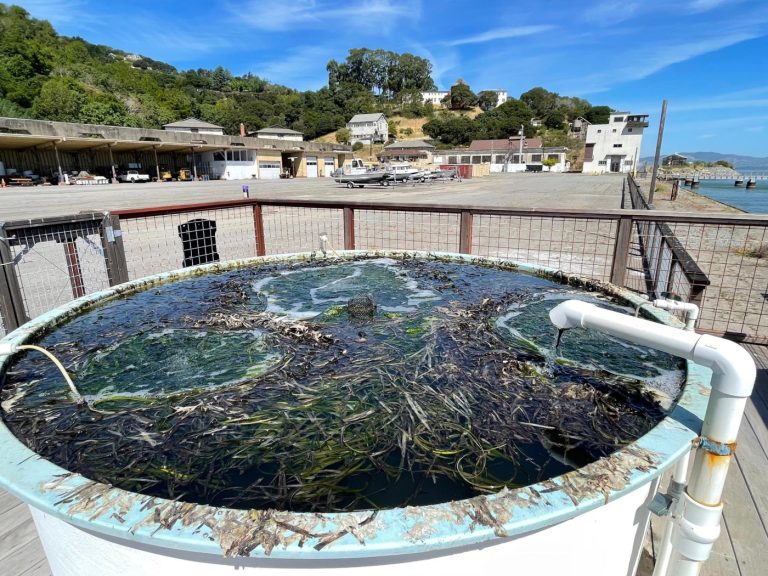After a fraught primary race that involved a two-way tie for second and an unprecedented tie-breaking recount, former San Jose Mayor Sam Liccardo and Assemblymember Evan Low are going head-to-head in a rare opportunity to fill an open Bay Area congressional seat.
U.S. Rep. Anna Eshoo, 81, announced last year that she’d be retiring after more than three decades in Congress. Her District 16 seat covers a large swath of Santa Clara and San Mateo counties and stretches from Pacifica in the north to San Jose and Los Gatos in the south.
Both Liccardo, 54, and Low, 41, are Democrats in an overwhelmingly blue district where more than half of registered voters are of the same party. Liccardo is considered to be more of a moderate Democrat, while Low has cast himself as the progressive in the race.
A recent poll conducted by the Center for Urban Politics and Policy at California State University Long Beach, Cal Poly Pomona and the University of Southern California showed Liccardo with a commanding lead.
Of the 544 likely voters that were surveyed between Sept. 14 and 21, 30.9% said they’d vote for Liccardo, while 20.1% said they’d vote for Low — 40% of respondents were undecided. When the undecided voters were asked to choose, Liccardo extended his lead from 10.8 percentage points to 16.5 percentage points.
Both candidates are familiar faces to many Silicon Valley voters. Liccardo, a former criminal prosecutor, served on the San Jose City Council for 16 years — eight as a councilmember representing the downtown area and eight as mayor — before he termed out in 2022. Low was elected to the Campbell City Council in 2006 at 23 years old and in 2009 he became the mayor, making him the youngest openly gay mayor in the country at the time. In 2014, he was elected to the State Assembly where he represents Cupertino, Santa Clara, Sunnyvale and parts of north and west San Jose.
So, where do they stand on the issues?
Housing and Homelessness
As mayor, housing and homelessness was one of Liccardo’s top priorities. Now, he wants to bring it to the forefront of federal policy and focus on issues that can be passed in a divided Congress.
“The housing crisis is on the front burner for every mayor in the country, and yet it continues to be a policy backwater in Congress,” he said. “So we critically need leadership in Congress that recognizes the imperative to move the housing crisis from the backwater to the front burner.”
With historic levels of vacant commercial properties, Liccardo said one of his housing priorities is to use federal tax credits to help rehabilitate vacant buildings into housing.
The former mayor said that the country needs federal policy relating to homelessness “that enables local communities to move at the speed that our national homelessness crisis demand.”
Liccardo wants to remove statutory obstacles that prevent Section 8 housing vouchers from being used for quick-build or pre-fabricated housing — a strategy that many California cities have used to house homeless residents.
Low called housing and homelessness the “issue of the day.”
“The America I want to see does not include fellow citizens living on the streets or in their RVs,” Low said. “No more excuses. We need to get serious about this decade-long emergency with compassion and with the sense of urgency that is demanded.”
Low said he supports Vice President Kamala Harris’s proposal that would provide a $25,000 tax credit for first-time homebuyers.
The assemblymember said that he wants to ensure that local communities in the district have the resources they need to combat these problems. If elected to Congress, Low said he would support legislation that would bring more resources back to the district to fund initiatives aimed at tackling homelessness, such as substance abuse prevention programs and supportive housing.
Tech and AI Regulation
Liccardo said the country is “paying an enormous price for congressional inaction and indecision” on issues like children’s online safety, data privacy and the regulation of cryptocurrency.
While he supports concepts like the federal government mandating watermarks on AI-generated images, he’s opposed to regulating the technology itself.
“The notion that state or federal government should get involved in tinkering with the software code and imposing testing mandates that no one knows are actually going to reveal anything about the safety of large language models, that’s not helpful,” Liccardo said.
Instead, he believes they should focus on things like “beefing up” fraud statutes that will allow the federal government to prosecute individuals who are using AI to defraud people.
Because there hasn’t been a lot of action at the federal level when it comes to regulating tech, Low said his experience at the state level, where he serves as the co-chair of the California Legislative Technology and Innovation Caucus, is critical.
“Often times government is slow on the regulation front and by the time we come up with regulation the technology has already advanced,” Low said. “This is case in point to not only just AI, but also the displacement of jobs and the future of work.”
Low said he supports regulating AI, but also plans to advocate for policies that foster new technologies, such as cryptocurrency. The assemblymember wants to balance protecting Americans while not hindering innovation.
The Economy
With Americans reeling from inflation, Liccardo said a “much more focused federal response” is needed.
The former mayor said the focus should be on where they’re seeing higher prices, like the grocery or pharmaceutical industries. He said there needs to be greater price transparency and the U.S. should consider reducing certain tariffs.
Low said he wants to fight for the middle class and “make sure that we get tax credit incentives to people who need it the most.”
The assemblymember said he wants to build off of the work that California has done when it comes to universal pre-K and helping young families. Low supports Harris’s proposal that would give families with newborns a $6,000 tax credit in the child’s first year.
Climate Change
One of Liccardo’s top priorities relating to climate change is accelerating the transition away from fossil fuels.
“We’re not going to sell climate change to half of the legislature that doesn’t believe in it,” Liccardo said. “What we can do is come up with creative ideas.”
One of those ideas is for Congress to enact federal financing that would help homeowners and small businesses invest in green energy solutions — like battery storage and rooftop solar panels — that will also help reduce their utility bills. Liccardo also supports coastal protection measures and preparing for natural disasters like floods, wildfires and droughts through infrastructure investments in the district.
Low wants to bring some of what he’s advocated for in California in terms of the environment into Congress, such as setting goals for zero emission vehicles and reducing emissions by 40% by 2030.
While promoting a green agenda, Low also wants to ensure they have what he calls a “just transition” that accounts for workers, such as those who work in the coal mines in West Virginia.
“How do we help ensure that this transition off of a fossil fuel reliant industry and society,” he said. “How do we help ensure that the transition of jobs also includes them?”
Reproductive Rights
Related Articles
Oakland’s labor unions once delivered a victory for Sheng Thao. As recall election approaches, will they save the mayor now?
Two candidates for East Bay state Senate seat have similar progressive goals — but very different approaches
US Senate: A general election foretold after Schiff and Garvey emerge from contentious primary
Prop. 36: Opponents of crime ballot measure see fundraising surge while trying to overcome polling deficit
If the polls just closed, how can AP already declare a winner?
Liccardo said he wants to do everything he can to support the federal codification of Roe V. Wade.
He also wants to improve healthcare access by reducing barriers to telehealth that could provide millions of women — especially those in red states — with access to reproductive healthcare.
As an assemblymember, Low helped co-author 2022’s Proposition 1, which codified the right to an abortion in the California Constitution. Low said he will continue to fight for a woman’s right to choose, while also supporting “the attack on IVF and contraception.”
He said he is also in favor of closing the gender pay gap and providing more workplace accommodations for pregnant women.
Gun Control
Liccardo said that while they can’t “magically remove” millions of guns from the county, they “must make gun ownership safer.”
The former mayor supports establishing a federal red flag law and broadening laws that would prevent people convicted of violent crimes to be allowed to possess a gun.
The issue of public safety is personal for Low, whose brother is a cop in the San Jose Police Department.
The assemblymember said they need to ensure that guns are out of the hands of perpetrators who shouldn’t have them in the first place. Low said he will support “common sense” gun safety laws like universal background checks and firearm purchase waiting periods.
Israel and Gaza
For Liccardo, two things can be true in the conflict between Israel and Hamas.
“Israel has the right to use military force to defend itself against terrorists and there are two million Palestinians suffering horribly and they’re in desperate need of aid,” he said.
The former mayor supports President Joe Biden’s efforts to stop the fighting and bring the hostages home. In the long term, he said that the U.S. needs to work with other Arab states to “supplant Hamas with civil authority that has legitimacy with people in Gaza.”
Low said that the “eradication of Hamas is not just for Israel’s safety, but it’s also for Palestinians.”
“The Palestinian people deserve a future of their own and a future free of Hamas,” he said.
He supports a two-state solution to “ensure long-term security” and the ceasefire deal that Harris has been advocating for, which includes the release of the hostages and humanitarian aid.












